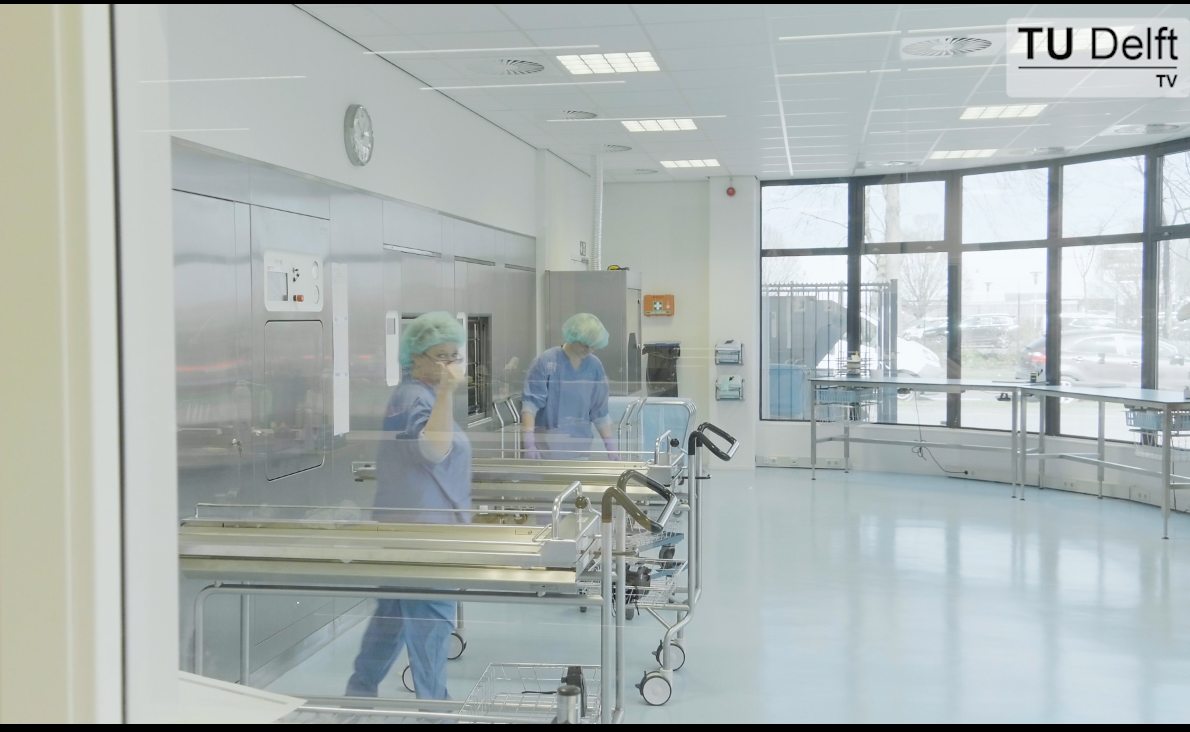TU Delft and Van Straten Medical have developed and tested a process to reuse masks safely up to five times. The process can be applied directly and by all hospitals.
Sterilisation room at Van Straten Medical (Still from TUTV video)
Masks are becoming scarce given the current demand due to the corona crisis. By safely reusing them five times or even more, the risk of shortages will diminish. Bart van Straten, Director of Van Straten Medical, adapted the sterilisation procedure at the requests of local healthcare institutions who feared shortages of the masks. His company has the same type of sterilisation unit that you’d find in a major hospital. The normal sterilisation procedure, under steam at 138 degrees, damages the masks. But at lower temperature and a longer duration, the masks remain intact.
Dr John van den Dobbelsteen (Biomechanical researcher at the 3mE Faculty) used a particle counter to verify the filtering capacity of the masks. The device sucks in air from the surroundings and counts the dust particles. Masks have specified reduction rates for certain sizes of dust. Van den Dobbelsteen saw no deterioration, even after five sterilisation cycles.
It is the hospital’s sterilisation expert for medical supplies who decides if the procedure is safe enough to be applied, says Van den Dobbelsteen. Other factors have to be considered: is the fit still tight, and can the user still breathe freely?
The beauty of the sterilisation procedure, says Van Straten, is that it can be applied immediately and at large scale. Every hospital has the necessary equipment and can start recycling masks tomorrow. At the European scale, it would make a difference of 100,000 masks daily.
Do you have a question or comment about this article?
j.w.wassink@tudelft.nl


Comments are closed.